We call ourselves Electoral Democracy because our government is elected through elections. Many times, voters have shown courage and caused major surprises. If a voter gets angry, they have often pulled down powerful governments. It is a fact that voters have changed governments. On the other hand, illiteracy and apathy towards voting are also prevalent. We started a major campaign against it. We run Voter education programmes.
Question – Let's return to the election and democratic process. I am sure you’ve have had this asked to you before. You were in the IAS. You were the CEC. After retirement, you have worked with many international organizations. How do you see the relationship between elections and democracy?
- Democracy cannot succeed without elections. These are two sides of the same coin. However, elections alone do not constitute complete democracy. They are just one part of democracy. Economist has an 'Intelligence Research Unit,' which has been publishing the Global Index of Democracy since 2006. They had termed India as a flawed democracy. Obviously, I did not like it. My natural reaction was that the West has an anti-India bias. But when I was writing the book ‘Undocumented Wonder: The Making of Great Indian Election', I deliberately read it.
They were talking about 206 countries worldwide. There was nothing specifically negative against. They reviewed democracies based on 70 criteria. Upon studying it thoroughly, I found that they were stating facts. They stated that women's participation in elections is only 9 percent. When there is almost 50 percent representation in population, why are there not 50 percent female candidates? Even today, 30 crore people in the country are illiterate. India has one of the least literacy rates in the world. Governance had clearly stated that within 10 years, primary education should have started in the entire country. But 75 years have passed. Whose fault, is it?
The Supreme Court has ordered that if a candidate fills out their nomination form, then the public know who the candidate is, what their qualifications are, and what their financial situation is. The court has made this mandatory after public demand. According to the report, in the 2004 Lok Sabha elections, there were allegations against 124 candidates. Some face serious charges such as rape, robbery, kidnapping, murder, corruption, and so on. This number rose to 163 in 2009 and 183 in 2014. In the current Lok Sabha, their number has crossed 233. The criminalization of politics in the country is increasing rapidly.
The world asks us, is this your democracy? At such times, our pride is hurt. Is this not a flawed democracy? There are many such indicators. We need to make improvements ourselves. If there is a common social and political will, only then improvements can be made. If a party decides that it will not field candidates who have criminal backgrounds, then the public will support it. Even if that person has a higher chance of winning. Party officials say, 'We field candidates like this as their chances of winning elections are greater.' I have an answer to this as well. My fourth book will be published soon. In its second part, I have analysed elections held from 1952 to the present, and it is found that women are not given tickets. Because they do not have money. How will they fight elections, they will lose because they do not have a chance to win. In these 70 years, the chances of women winning in every election are 50 percent. Their strike rate is very high. Where they are given 10 percent of the tickets, they have won 15 percent of them. That is, they have a higher ability to win. Political leaders need to accept this concept and work on it firmly. I have addressed this in my book, let’s see how much difference it makes.
Question - This is a related question; India is called an 'Electoral Democracy'. In this, other components are weak. What do you think?
- We call ourselves Electoral Democracy is because our government is elected through elections. It can be removed, or dismissed. Many times, voters have shown courage and caused major surprises. If a voter gets angry, they have often pulled down powerful governments. It is a fact that voters have changed governments. On the other hand, illiteracy and apathy towards voting are also prevalent. We started a major campaign against it. We told voters that if someone offers you 500 rupees for your vote, it is like selling your dignity. If you go to the politician for some work or complaint and they ask you to pay 5000 rupees, then it’s your loss. So, isn't selling your vote at a loss? However, helpless poor voters feel that if they get 500 rupees, it is still something. Against this, we ran a voter literacy campaign. Sometimes it makes a difference, sometimes it doesn't. Civil organizations and NGOs need to run drives.
When I was the Election Commissioner, (not the Chief) I had raised the issue that in big cities like Varanasi, Amritsar, and Ludhiana, voter turnout is very low (only 20-25%) We thought of doing something about it. The Chief Election Commissioner denied saying, 'Educating voters is not our job, it is the job of politicians, media, and NGOs.' I disagreed. Lack of awareness among voters about candidates is a serious issue. Suppose there were 20% votes cast. The division among 10 candidates was done. He won by getting 12% of the votes. But 88% of the people did not vote for him. Then the credibility of the candidate in the voter association becomes a serious question, Isn’t it the Election Commission’s responsibility?
We created the Voter Literacy Department. It was successful. We first tested it in Bihar's elections. Women's participation has increased the most. Today, in 17 states, the number of women voters is higher than men. Because we have educated them.
We tell voters to do three things. First, Register yourselves on the voter list. Second, cast your vote on the day of voting. Third, vote with integrity and authenticity. Do not vote for money, a bottle of alcohol, or 500 rupees. If you do this, you may incur a loss. Our campaign received a good response.
Question - How can voters be educated to choose the right candidate? Election Commission plays a significant role, but it also has its limits. Do you think Social organizations could contribute more to this?
-I agree that everyone's role is important in this. The Election Commission acts as a mediator. When we started the voter literacy campaign, we created Youth Icons. We brought in sportsmen and film actors. Our first and biggest Youth Icon was former President APJ Abdul Kalam. It was important to connect with the youth. By appealing to them, we gave lectures in various places, saying that your vote is a great power. Use it. Through this, we reached 25,000 Brand Ambassadors of Democracy in universities. We have placed boxes everywhere. If you are eligible, fill out your form and submit it.
Many parents sit in the drawing room and curse politicians. But they never vote. Some people are actually PROUD that they have never voted in their life. I say, “Hey brother, if you don't vote, shut your mouth! If you don’t shut it, we will force you.” Later, a song became very popular. 'Pappu can't dance sala...' We modified that song and made 16 TV and radio commercials with it. Pappu, sitting in the drawing room, was our hero. This hero dances well, but the flaw is that he does not vote. We made fun of him. 'Pappu doesn't vote, aha...' 'One vote makes a difference, the vote is necessary, don't become Pappu' so on and so forth. Through n a month-long campaign, the voting increased by 14%. People who used to say, 'We have never voted,' started taking photos of “voting finger” with pride, saying, 'We have voted, we are not Pappu.' In this way, we changed people's mindset.
We conducted several experiments in the voter literacy campaign. We gave responsibility to school children. We told them, that when their parents curse politicians while sitting in the drawing room, ask them if they voted. Children said, if parents do not vote in next election, children will not eat. Such an experiment was done in Uttar Pradesh and other parts. As a result, people went out to vote. Small children are future voters. We involved them. Our program became very successful. UNESCO called it the 'Participation Revolution.'
Many people say that the Election Commission is strict. Earlier, thousands of vehicles used to run. Now, maximum 10 are allowed. Flags cannot be put up at every home. Walls cannot be painted. Thousands of rupees used to be spent on this. But during T.N. Seshan's time, we controlled it. Then people started saying, the Election Commission has killed the festival of democracy. Even the leaders and media started criticizing.
I have a senior friend in the media. I won’t tell her name. She wrote an article in the 'Hindustan Times'. Two days later, I wrote a response to her there, saying, ", If you happen to miss the 'Festival of Democracy,' then please give me your address. I send this festival to your home. All political parties will come, and they will paint your fence. The loudspeakers will be playing for 24 hours for you; then don't come complaining.
A Festival cannot be a disturbance. The festival is about increasing the voting process and enthusiasm. The festival is about peacefully conducting the poll. The festival is about maintaining law and order. Celebrating the festival by causing chaos and violence is not acceptable. At that time, we used all our rights. We put all the goons in jail, so there are no crimes. At other times, the police cannot find the criminals. But during the election, we use our authority, then everyone is in. If a police officer is neglecting money distribution, when such a complaint comes, we change him at night and appoint a new officer there. In Uttar Pradesh, we had removed the Home Secretary, Chief Secretary, and DGP at the same time.
Question - In 2012, you had levelled allegations against a central minister. It seems they had also asked for your forgiveness afterward. Now, after 10 years, we see the Election Commissioner attending PMO’s meetings. A new law will be made for the appointment of Election Commissioners. How do you see all these events?
-It is a fact that the government makes appointments of the Election Commissioner. I too have come through that process. My appointment was made by Dr. Manmohan Singh. However, in those six years, he did not interfere in my work once. If your work ethic is strong, no one can disrepute you. If they try, you can call them out and they’ll face the music themselves and that message is loud and clear, they will not dare. If I bend, they will break me.
Coming back to the point Law Ministers in that government announced in his wives' constituency, they would increase the minority quota to nine percent from four and a half. BJP immediately brought it to our notice us, saying this was a violation of the code of conduct, as this announcement was new. We had a court hearing in the commission. Prestigious lawyers were involved. Arun Jaitley and Ravi Shankar Prasad were there from BJP, and Kapil Sibal and Abhishek Manu Singhvi were there from Congress. Then a four-day debate ensued. In it, Salman Khurshid was found guilty. We banned him. Usually, decisions of the High Court are corrected by the Supreme Court. But there is no appeal to EC hearing.
However, the government has not made any effort to harass us. Maybe they have also realized by now that the person we appointed is doing good work. When I was an Election Commissioner, Karan Thapar interviewed me. He said that the government appoints you unilaterally. Then I clearly said to him, that I am the beneficiary of it, but I am an opponent of this method. If the opposition leader had approved my appointment, then I would have been prouder. This message would have been sent to the public that, if the ruling or opposition party chooses, the person is good and transparent. He is impartial. Then being impartial and transparent is the key to the credibility of the Election Commission. This is the reason that in the elections of India, the Election Commission is considered a world leader.
If we conduct 99.9% fair elections, we declare ourselves as failures. We put in full effort; we should have seen 100% result. Not a single booth or person should be prevented from voting, that is our effort. Do you know how many employees are there in the Election Commission? Only 400 work full-time, and in each state, there are 30-35 people. There is a total of eight thousand people. However, 120 million employees participate in the election process. That means all government employees work for the elections. Usually, government employees are belittled as Babus, but we ask these Babus to work.
I started a training institute to understand the election process. But Law Minister Salman Khurshid opposed it. I don't know, he may not have liked my face. I opened four unused quarters on the upper floor of the commission and started a training centre there. I am proud to say that in 11 years, 108 election commissioners from 108 countries have come there for training. Therefore, India is a world leader in elections.
There is a discussion about the new law that might stop India from being a World leader. Efforts are being made to lower its power. In his autobiography, Mr. T.N. Seshan wrote that the Election Commissioner wrote to the Secretary of State that he wanted to buy a book for 30 rupees. This situation occurred. He wrote that the Election Commissioner's Secretary sat outside the Law Minister's cabin for two and a half hours. He has changed this and we took him forward.
Virappa Moily was the Law Minister before Salman Khurshid. At that time, I was always eager for electoral reforms. A meeting was underway at the EC. I said something, and then Moily said, 'You do your work, I'll do mine.' I left after the conversation. He was a minister and I was just an ordinary Election Commissioner. Three months later, he called me. He said, 'We want to discuss electoral reforms with you. Can you come to my office tomorrow morning for a cup of tea?' I was stunned for five seconds. At that moment, I had to make a big decision in my life. I thought if I went, then Seshan sir’s statement would be proved right, that the Election Commissioner is sitting outside the Law Minister's cabin for two and a half hours and the Law Ministry is managing the Election Commission through one of its departments.
I said to him respectfully, 'I invite you to come to us.' We show you various experiments of the Commission, new ideas, etc. He agreed, and he came to the Election Commission. He discussed various issues for three and a half hours. We decided to take electoral reform programs to seven states in the country. Then after three months, we received information that the Central Law Minister would come to the Election Commission. But for some inevitable reasons, that meeting could not take place. But in 70 years, such a thing had never happened. In those five seconds, Allah guided me not to go to him. Please don't go there, you can call them here... I just read now that our Chief Election Commissioner and Election Commissioner had gone to the law secretary's cabin to have tea. We used to talk about the minister, here it was his secretary! This expectation cannot be made.
I also wrote a heart-touching article on the issue you raised, that the Prime Minister speaks at a meeting. PM informs the Election Commissioner that they should be present at the meeting. Is this foolishness? You are a significant official in the hierarchy of the Supreme Court. How can you tell them to come to the PMO meeting? Is there a difference between the Supreme Court and the Election Commission? This expectation is from the Constitution. Originally, that demand was wrong. You are in the Election Commission. Many big committees come. Whether it is the ruling party or all the people in the opposition group come. Even the law ministers come.
.jpeg) Question: Last year, you had a meeting with RSS chief Mohan Bhagwat along with other leaders. After that, you faced a lot of criticism. It was said that you represent the entire society. You give importance to the Sangh. You had also written about it. Now, how will you explain that?
Question: Last year, you had a meeting with RSS chief Mohan Bhagwat along with other leaders. After that, you faced a lot of criticism. It was said that you represent the entire society. You give importance to the Sangh. You had also written about it. Now, how will you explain that?
-This event took place last August. It so happened that, we, four to five people, would occasionally meet up for snacks. Once we decided to discuss how secularism is functioning in our country. At that time, incidents of mob lynching were happening. India is known globally as a secular country. There is a great tradition of harmony here. Major religions of the world coexist here. There are 600 languages, 2000 dialects. Unity in diversity is our motto. Based on this context, we decided to write them a letter. We thought, when you come to Delhi, if you can make time for us, we would like to meet you. They agreed immediately. They said, I am coming to a certain date. Accordingly, they invited us to their office. At exactly ten o'clock, we entered. Their office was very ordinary. After looking at a couple of things, we sat down. They had given us an hour, but the discussion went on for 1 hour 45 minutes. They listened to us carefully. For an hour, they listened to the five of us.
We never held any secret meetings. We were not going to hold any such meetings. Then, after 30 days, news came in a Hindi newspaper. After that, there was chaos. The media started asking questions. Then we decided that we should tell what happened. Everyone told me, you write regularly in 'Indian Express.' Write about this meeting. So, I wrote in detail. In it, their body language - where I had to face the most criticism. Everyone said you were overwhelmed by this meeting. For me, body language is significant. In the total dialogue process, it proved to be very useful. I am speaking to you, and you are looking around, you also say a lot by just looking here and there. In the article, I analyzed all of that.
In the meeting, whatever happened, I briefly noted it down. They mainly talked about two things. One was regarding cows. Hindus revere cows. Secondly, you people call Hindus "Kafirs," which we find very offensive. We said it's true we believe that cow slaughter should be stopped. There are many countries where it's banned. We are against this. We said, that in the states where it's not banned, you should also appeal there. When it comes to Kafirs, it's an Arabic word. Its meaning is 'disbelief.' We believe in Allah and Muhammad is his messenger. That's our faith. Its meaning for us is 'belief.' Meaning, we are 'Muslims' or 'Momin.' Those who do not believe in this are 'Kafirs.' They are not enemies. But if the word is used as enemies, it must be stopped. We said, we never used it in such a way. Now we will tell our friends also not to use it. Say 'disbelief' or say anything else!
Later, we said, we also had a complaint. You call us all jihadis. You call us Pakistani. He said, 'We also find this offensive. This is a mistake. We tell our people not to say such things!' The meeting went very well. Then they said that there are five of you. Increase this group, but not too much, if it reaches 20-30, then it's complete, and I'll come. We said, if you are busy, just give us three or four names, and we'll keep in touch with them. They gave us four names. We have had two meetings with them. Even in those, we said the same thing, tell us what your complaints are, and we can either give you the answers or correct them. Whatever complaints you have against us, tell us. But we are still facing problems. People say, your meeting took place, but nothing has changed on the ground. There are religious meetings every day and calls for division are made. Sometimes lynching, and beating, but nothing has changed in that.
It's different for us. Many people asked who these five retired people were. Did anyone give them authority? How did they become representatives of society? It was written, that we are never representatives of society. We have never claimed such a thing. We are just five ordinary people. Two retired officers, one businessman, one journalist, and one retired army officer. We went to them in our capacity. We do not represent society. But if you ask us a question, tell us, has society given you authority? No one has answered that. we are also a part of society.
We were working at a personal level. The Jamiat Ulama-i-Hind, Jamaat-e-Islami, or similar Muslim religious leadership are considered representatives of society. We also met with them. I am pleased to inform you that they said, 'There may not be any conclusion, but your efforts are commendable. Keep going. Keep meeting. Because making an effort is in your hands, giving results is in Allah's hands!' They gave us a very positive response. We believe that something positive will come out of it. We have started this dialogue. Regardless of the outcome, nothing is lost in dialogue. Even during the war, there is a hotline. Both sides have military officers talking. Even during a hail of bullets, there is a dialogue with the prime minister. In short, in any situation, dialogue should not stop.
Question - What is your role regarding the Uniform Civil Code?
In May, I have written an article on this subject in the 'Outlook' weekly. They published a special issue on it. There were many long articles in it. The editor was constantly behind me. He said, "We need your article because you write very simply. Make the difficult subject easy." There was clarity in it. But it was not my subject. I could not write it in two hours. But I will have to read it for this subject. I read for a week and then wrote an article. Two or three points were made clear in it. Firstly, Justice Balbir Singh Chauhan, the chairman of the Twenty-First Law Commission, was there. He was the second senior judge of the Supreme Court. The Prime Minister had appointed them. It was easy for them to work on them, and prepare the format of the Uniform Civil Code. I said everyone should read their report. Do only what they said. They had discussed with 70,378 representatives. Then they clearly said, 'It is not appropriate to implement the Uniform Civil Code. Also, there is currently no need for it.'
Balbir Singh and his Law Commission were appointed by this government. On the other hand, it is said that this law is being introduced in the country to bring about equality. But Balbir Singh has said that this law will create inequality in society. Dr. Ambedkar did not make it mandatory in the Constituent Assembly. He discussed that there is diversity in India. Therefore, such a law cannot be made. So, they blocked it. Everyone is talking about Article 44. But they did not read it. It clearly states that 'efforts will be made.' It means that efforts will be made to introduce the Uniform Civil Code in each state. They did not mention one community but in every state. Even Article 371 was applicable. Nagaland, Meghalaya, Manipur, Goa, everywhere it has been emphasized to be careful not to touch the tribal people. You touch and see! Northeast India is currently seething over this issue. Now the North East is on fire by taking the subject of the Uniform Civil Code forward.
Another important point is that a common man walking on the street says that they have permission for polygamy. If it is so, then give everyone that solution. Everyone will be happy! Isn’t this the Uniform Civil Code?
The 21st Law Commission has clearly stated its role in polygamy. Even I said to Mohan Bhagwat when giving the population myth book, polygamy is impossible in India. Because in India, the number of women is less compared to men in the gender ratio. There are 940 women for every 1000 men. Meaning, 60 people will not find a wife. Then how will someone get a second wife? He also laughed listening to this.
The Law Commission noted that the highest polygamy is in the tribal society, at 15.2 percent. After that, Buddhists, Jains, then Hindus at 5.8, and Muslims at the lowest, 5.7. Meaning, there is the least evidence of polygamy among Muslims. The funny thing is, those who are not polygamous, are ready to fight and die. I say to Muslims that if you do not practice polygamy, then why don't you demand an end to this practice? If you demand it, everyone will follow. There is a ban on it in 22 Muslim countries, so why can't it happen here? Essentially, this debate is being started to spread polarization in society.
A very important question was raised by a senior leader, in a family where there are many children, should they be treated differently? In response, someone said, that in one family there is a 6-month-old child, an 8-year-old girl, a 15-year-old boy, and an 80-year-old elderly person; should everyone wear the same clothes? Everyone's food will be different, everyone's clothes will be different. Will everyone be given clothes of the same sizes in the name of equality? This is a matter of common sense.
When Justice Chauhan studied this, his motive was different, but what emerged was very different. They later realized that such a law would not be in the interest of the country. If possible, the Constitution Assembly would have done it. This issue has gone to the Supreme Court five times, and every time the court sends it to the state government and says why haven't you made such a law yet? It is not easy even for the state government, if it were easy, it would have been done by now.
My marriage is through Nikah, you take seven steps together. This is a personal law. No one has any objection to it. I have no objection to the seven steps; you have no objection to the Nikah. I will be buried in the ground; you will be cremated. This is a personal law, who has a problem with it? If there is inequality towards women, it needs to be corrected. This correction should be made in every community and every law.
Reform should be done by Muslims in Islam, and reform should be done by Hindus in Hinduism. That is the spirit of it. Trying to impose from the outside is like misdirecting. Such efforts only increase bitterness.
Question - The final question is that your book 'Population Myth' has been released. In it, the myths spread about the increase in the Muslim population, you have worked to break them. Tell us briefly about that book.
-For the past several years, a misconception has been spreading that Muslims have more children compared to Hindus. In Hindu families, there are two children, while in Muslim families, there are ten. However, information released by the Indian government tells a different story. Based on the National Family Health Survey from 2001 to 2005 and earlier census reports, I have made it clear that there has not been a significant difference in the fertility rate between Muslims and Hindus, neither 30 years ago nor today. I have made it clear that, compared to others, the Muslim community has accepted family planning the most.
Professor Dinesh Singh, my good friend and former mentor from Delhi University, is a great mathematician. I have sent him my data and told him to analyze it mathematically and tell me what will happen next. I have included his analysis in my research book. He has clearly stated that this cannot happen for the next thousand years. The question does not arise that Muslims will outnumber Hindus. Because the Muslim graph is declining and the Hindu graph is rising. In 1951, the Hindu-Muslim ratio was 79 crores. Today it is 80 crores. In such a situation, it is said that Muslims are coming. I have a video in which it is stated that in 2029, a Muslim will become the Prime Minister. Unfortunately, such baseless claims of Muslim population explosion are being made. People are being frightened. Social unrest is beginning.
There is an organization in Mumbai that conducts the National Family Health Survey. Its name is the 'International Institute of Population Sciences'. Its professor, named James, has been suspended. Because the data did not suit them, so they pressured him. This is happening. This data exists, which speaks the truth.
Question - Are you optimistic about the future of this country? How do you feel about the future of the country?
-I am extremely optimistic. I always say that India is a secular country because Hinduism is secular here. Once a Pakistani channel asked me, "What does it mean when you say this?" That time, in 1947, when Pakistan became the 'Islamic Republic of Pakistan' in the name of religion if India had become a Hindu nation, would it have made a difference? Because in the Constituent Assembly, 83% were upper-caste Hindus. However, they unanimously chose a secular India. Even though the majority were Hindus, they chose it.
On a personal note, all my friends are Hindus. I spent a few days at the Punjab Wakf Board. Whatever stones, or insults I faced, they were from Muslims! India has a 5000-year history of secularism. That is our global greatness.
I don't know how many crores of people were killed or displaced on both sides after the partition. Many Hindus were living near Delhi, they were called refugees. In the last 10 years, they have forgotten their pain. The family of Kuldeep Nayyar was destroyed. But they did their best to connect the country. Everyone forgot their sorrow quickly. Because Hindus in India are generous. We have forgotten so much that forgetting 1000, 500 deaths there is not difficult. But nowadays, whether it is Godi media or social media, they don't let it go.
Forgetfulness is a priceless gift given to us by God. I still cry today remembering my mother's death 25 years ago. My father's death still brings tears to my eyes. After someone's death, we mourn for four or five days, then we get back to work. Sometimes we remember, pray, and then forget.
All these things are temporary. Good and bad moments come and go. In 1991, there was a big wave of polarization after the demolition of the Babri Masjid. Five years later, it faded away. BJP had faced defeat then. The majority who defeated them were Hindus. About 80% of Hindus here behave secularly. That's why I am optimistic.
Interviewer: Sankalp Gurjar
Sankalp.gurjar@gmail.com
The interview was conducted primarily in Hindi.
Transcriped and Translated in Marathi by Kaleem Azim, Pune.
Marathi to English Translation by Meghana Kavale.
Tags: Elections Loksabha Elections 2024 sadhana-digital interview Load More Tags

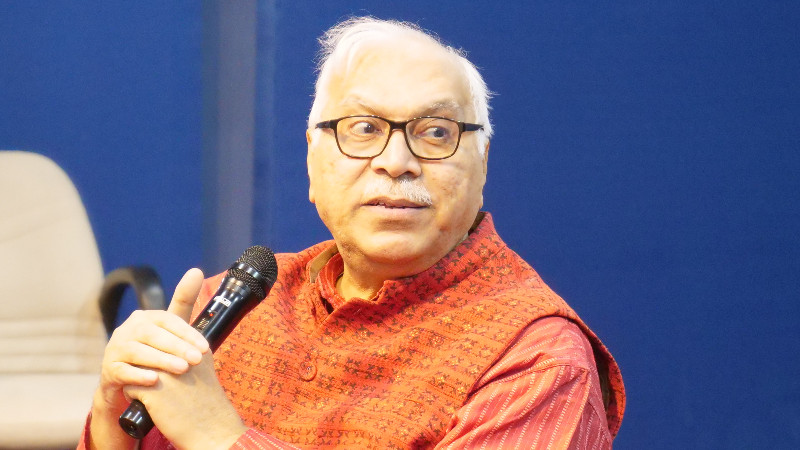

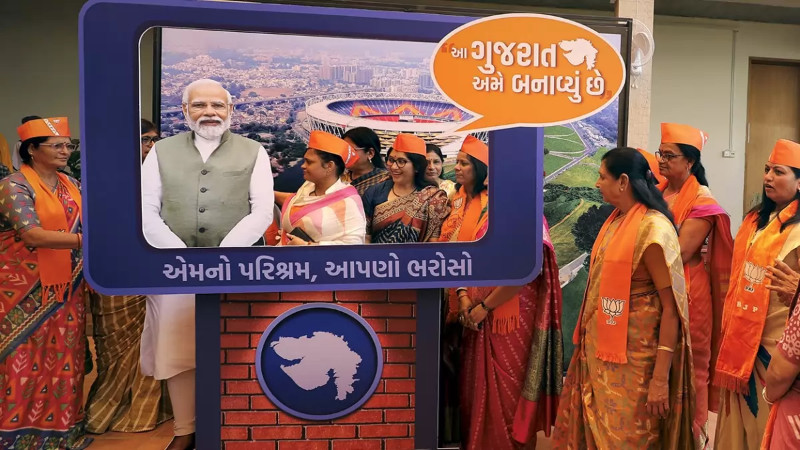
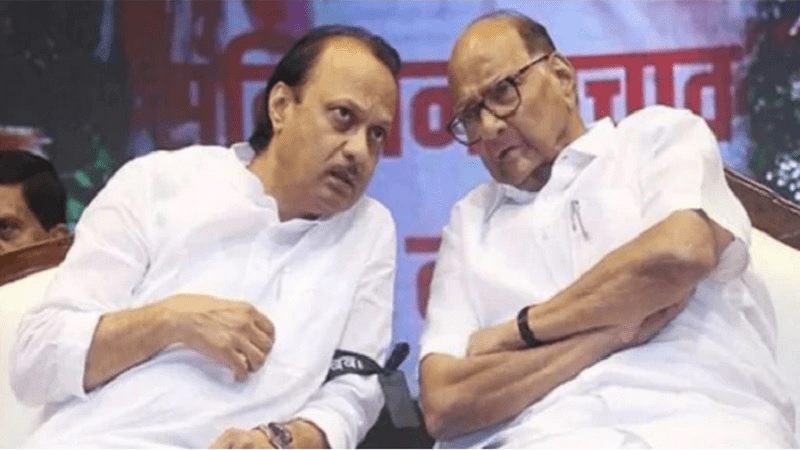

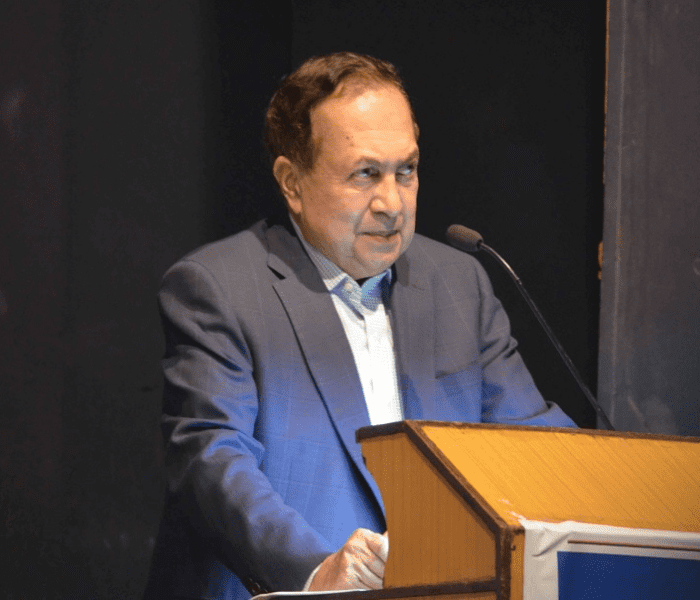
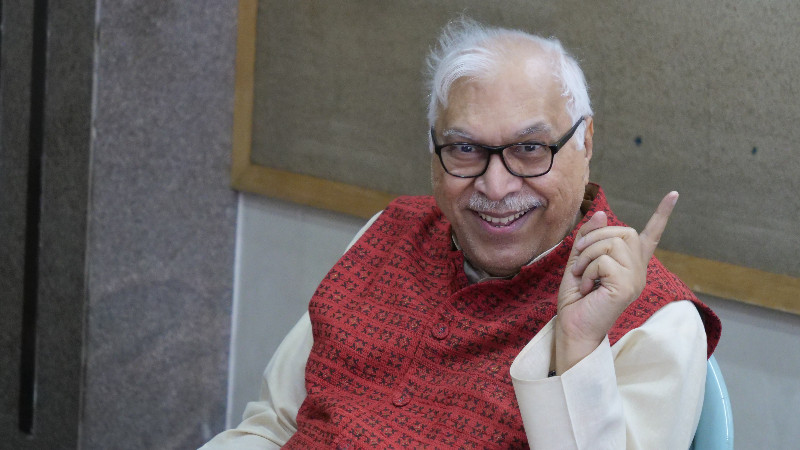


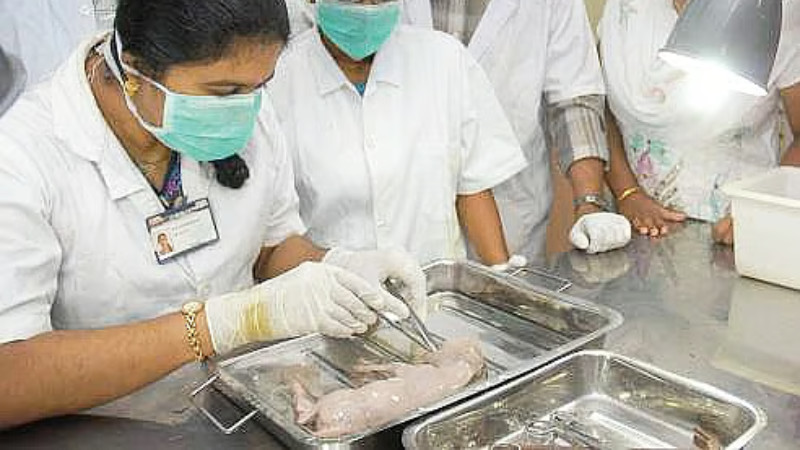
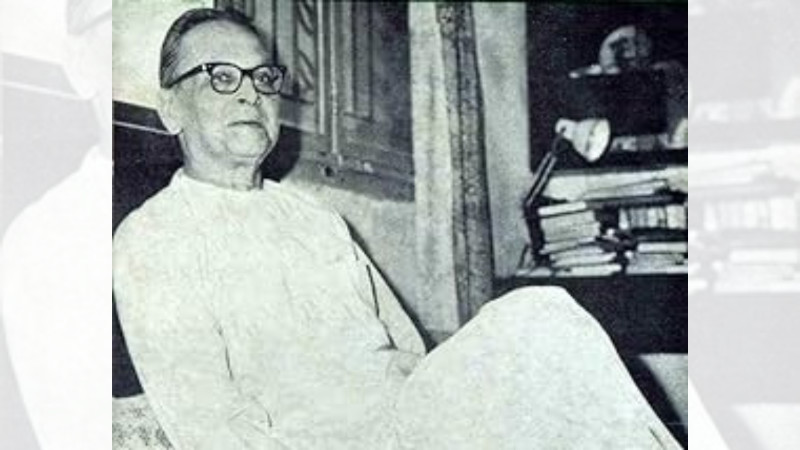
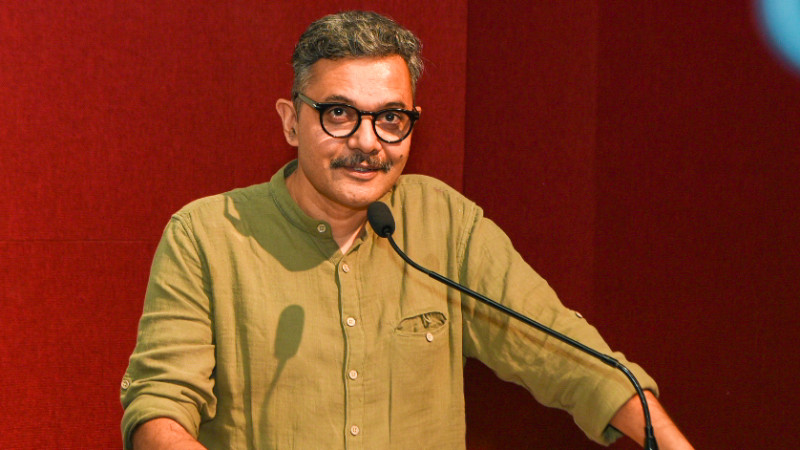
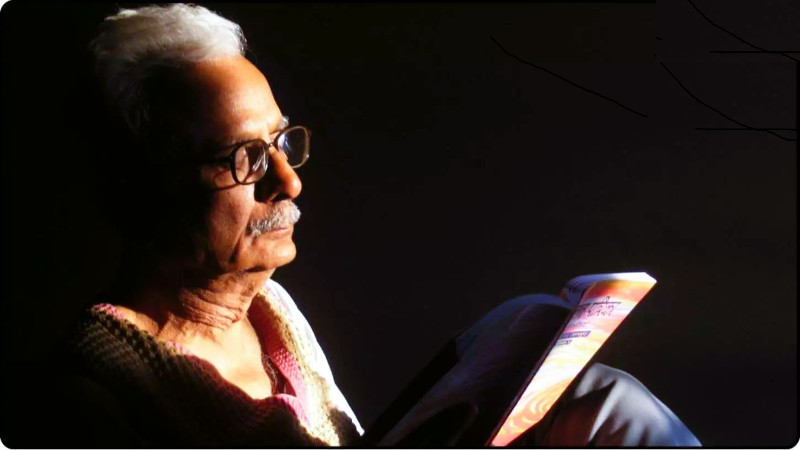
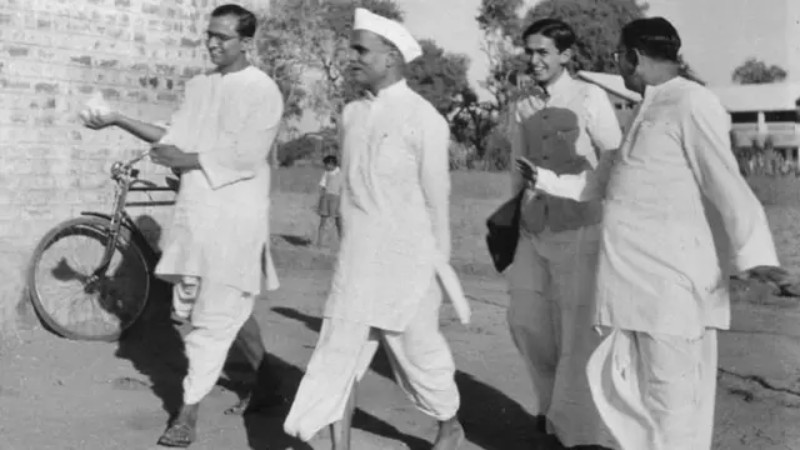
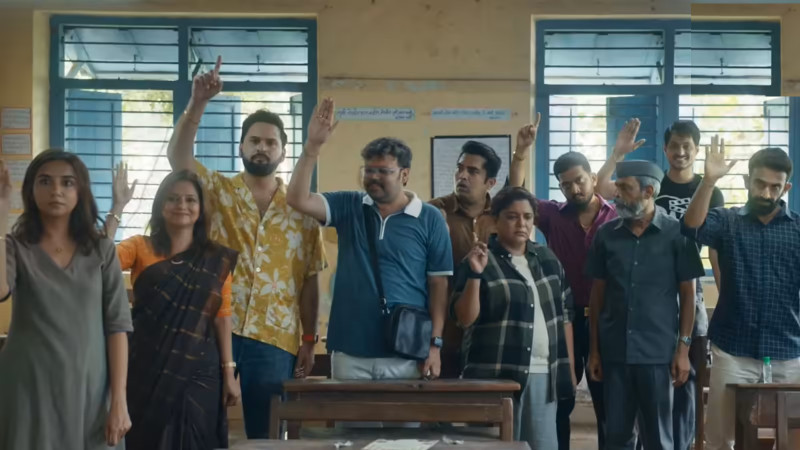
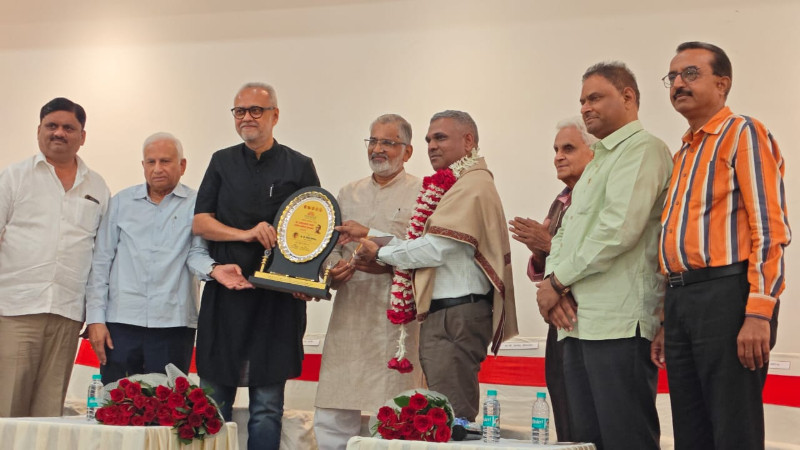
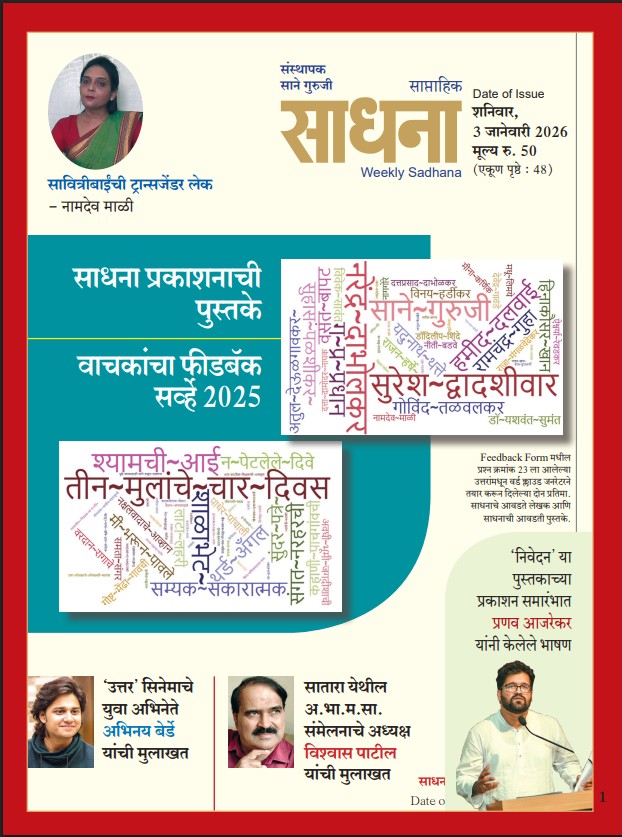













Add Comment